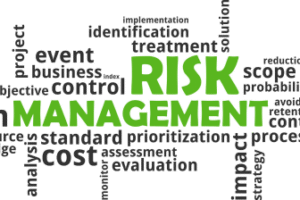
Risk Management Course for Beginners
Risk Management Course for Beginners
Risk has always been present in business activities, financial decisions, and even everyday life. It could affect a multinational firm, a start-up, or a single professional. Knowing how to recognise, analyse and manage risks is an important skill. An entry-level risk management course helps students build a strong foundation and equips them to handle uncertainty systematically.
Why Risk Management Matters
The environment in which organisations operate is full of uncertainties. Market fluctuations, regulatory changes, technological disruptions, and operational failures all pose risks.
These risks can lead to financial loss, damage to reputation, or even force a company out of business if not managed well. A formal risk management course helps professionals address these challenges systematically. It develops an understanding of risks and methods to minimise their impact.
Even students with little or no experience in risk management can boost their career prospects. They gain practical knowledge applicable in industries such as finance, insurance, manufacturing, healthcare, and consulting.
What Beginners Learn in a Risk Management Course
A basic risk management course usually covers the following topics:
- Introduction to Risk – The meaning of risk, types of risk (strategic, financial, operational, compliance, reputational), and how they affect decisions.
- Risk Identification – How to spot threats in a business environment.
- Risk Assessment – Evaluating the likelihood of risks and their potential impact.
- Risk Mitigation Strategies – Methods like diversification, insurance, hedging, and contingency planning.
- Risk Monitoring and Reporting – How organisations track risks and communicate them.
- Case Studies – Applying theoretical knowledge in real-life scenarios.
Through these modules, beginners learn to analyse uncertainties, make informed decisions, and stabilise the organisations where they work.
Professional Advantages of a Risk Management Course
A risk management course offers many benefits:
- Career Opportunities – Positions such as Risk Analyst, Compliance Officer, Operational Risk Manager, and Business Consultant.
- Global Applicability – Risk affects companies worldwide, and the skills can be applied in any sector.
- Professional Development – Enhances decision-making, strategic thinking, and problem-solving.
- Enhanced Employability – Employers favour candidates who can predict risks and reduce losses.
For beginners, this qualification also opens doors to advanced fields like finance, auditing, and corporate governance.
Why GRMI Institute for Risk Management?
The Global Risk Management Institute (GRMI) is a leading institution providing structured education in risk management. It is an international organisation focused on global needs, while ensuring practical application remains a priority.
Here are key reasons to choose GRMI for risk management training:
- Specialised Curriculum – Developed by industry experts with real-world experience, offering both theory and practice.
- Exposure to Industry – Students learn through case studies, corporate projects, and guest lectures by top professionals.
- Global Perspective – GRMI equips learners with skills applicable across industries and regions.
- Career Support – The institute offers guidance on placements, internships, and professional networking.
- Reputation – Known for excellence, GRMI prepares students to work confidently in the industry.
By joining GRMI, beginners gain a solid education and the goodwill of a reputable institution.
Who Should Enrol in a Beginner’s Risk Management Course?
This course is ideal for:
- Graduates or post-graduates planning to specialise in finance, business, or management.
- Young professionals aiming for careers in compliance, auditing, consulting, or corporate risk.
- Business owners want to safeguard their organisations from unforeseen threats.
- Individuals seeking to improve their decision-making and analytical skills
Risk Management Future
The demand for qualified risk managers is growing as companies become more interconnected and technologically advanced. Organisations face numerous daily risks, such as cybersecurity threats, financial issues, climate risks, and regulatory changes.
A risk management course trains professionals to handle emerging threats effectively. This field offers lifelong career opportunities with significant growth potential. The skills acquired not only enhance professional life but also improve personal decision-making, making this career path highly rewarding.
Conclusion
A beginner risk management course provides essential skills to navigate uncertainty in both business and life. By learning about risk identification, assessment, mitigation, and monitoring, students gain the confidence to protect organisations and create value.
Choosing GRMI as a learning platform ensures access to high-quality education, industry expertise, and career advancement opportunities. This course marks the first stepping stone for anyone seeking a successful career in risk management.
With GRMI’s support, students can build a solid foundation and pursue a bright, influential future in this growing field. To know more you can directly reach out at +91 9910939240.
FAQ's
Q1: What is a Risk Management Course for Beginners?
Ans: A beginner’s risk management course teaches the basics of identifying, assessing, and managing risks, helping students build a strong foundation for their careers.
Q2: Why is risk management important in business?
Ans: Risk management helps organisations handle uncertainties like market changes, compliance issues, or operational failures, reducing losses and improving stability.
Q3: What will I learn in a beginner’s risk management course?
Ans: You’ll learn about types of risks, how to identify and assess them, risk mitigation strategies, monitoring, reporting, and applying concepts through case studies.
Want to Stand Out? Choose the Best Course After Graduation That Pays Off
You may also like

Best Short Term Courses in IT for Freshers

What is the Best Course in Risk Management in India?


